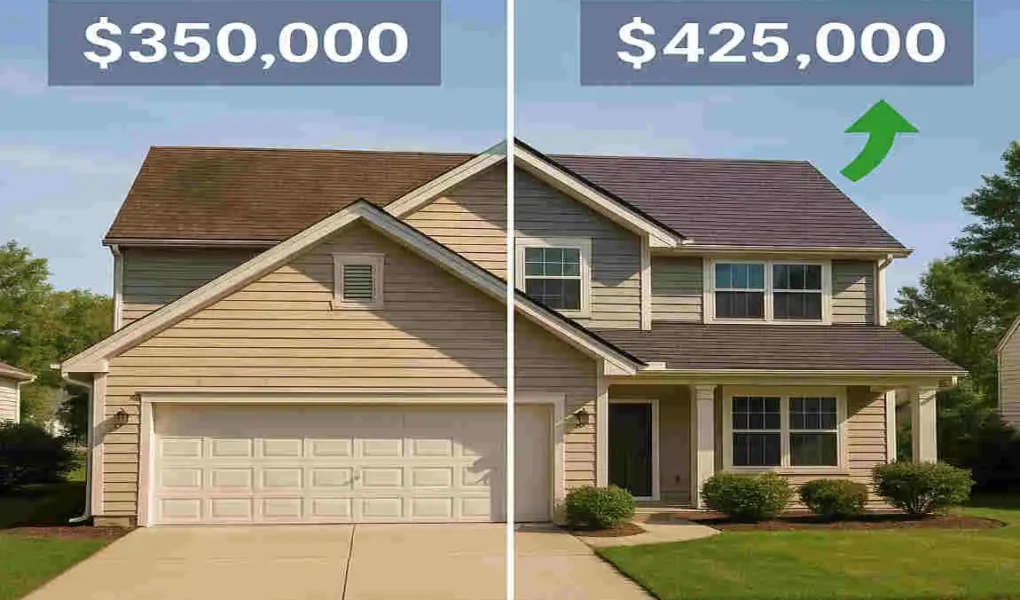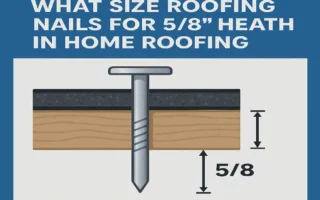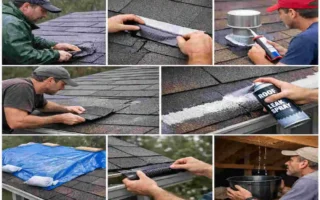When it comes to selling your home, several factors can impact its market value. From the location and size of your property to its overall condition and curb appeal, every detail counts. But have you ever considered the impact of your roof on your home’s value?
What Makes a Roof Important for Home Value?
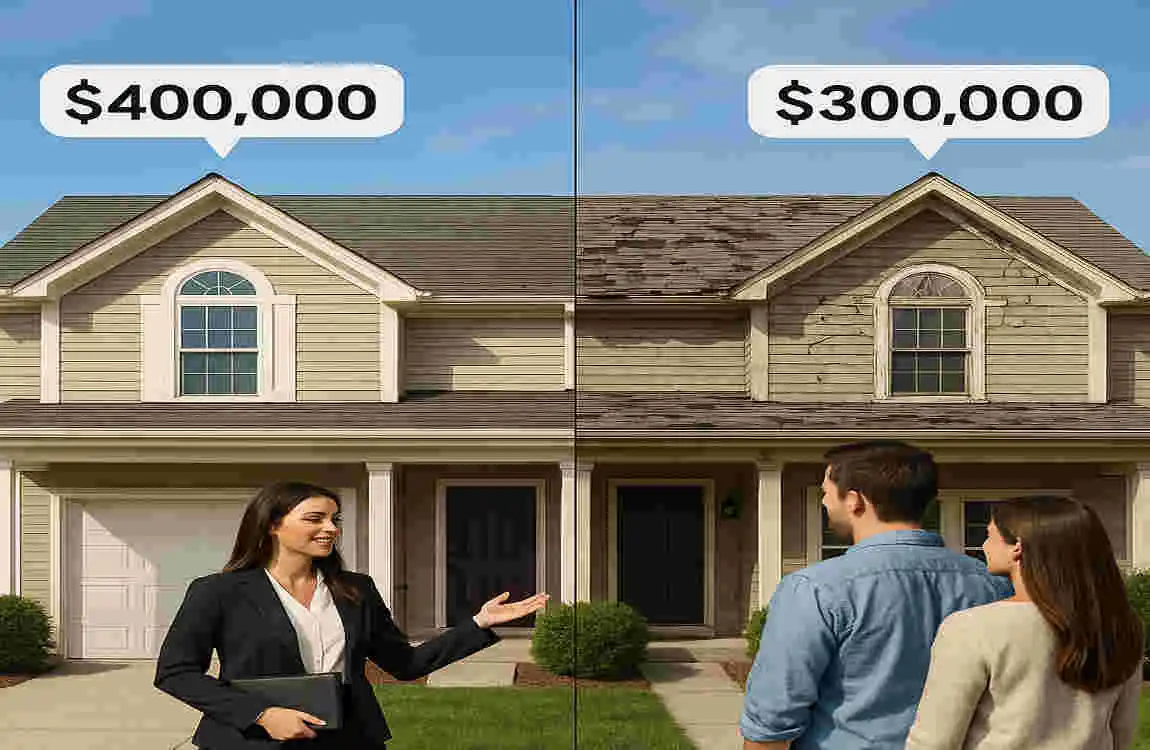
The Roof’s Role in Protecting Your Home
Your roof is more than just a decorative feature; it’s the first line of defense against the elements. A sturdy, well-maintained roof keeps your home safe from rain, wind, snow, and sun damage. When potential buyers see a new or well-cared-for roof, they feel confident that the home’s structure is protected, which can positively impact the home’s value.
The Impact of Roof Aesthetics on Curb Appeal
First impressions matter, especially in the real estate industry. A new roof can significantly enhance your home’s curb appeal, making it more attractive to potential buyers. Whether you opt for a classic shingle style or a more modern metal roof, the right roofing material can complement your home’s architectural style and enhance its overall appearance.
Energy Efficiency and Insulation Benefits
In today’s eco-conscious world, energy efficiency is a major selling point for many buyers. A new roof, particularly one made with energy-efficient materials, can help reduce your home’s energy consumption and lower utility bills. This not only appeals to environmentally conscious buyers but also adds value to your property.
Safety and Compliance with Building Codes
A new roof can also ensure that your home meets current building codes and safety standards. This is particularly important in areas prone to severe weather or natural disasters. By investing in a new roof, you’re not only protecting your home but also ensuring that it meets the necessary safety requirements, which can positively impact its value.
Understanding the Market Value of a Home
Defining Market Value in Real Estate
Before we dive into the specifics of how a new roof can boost your home’s value, let’s take a moment to understand what market value means in the context of real estate. Market value is the estimated amount that a buyer would be willing to pay for your home in the current market. It’s influenced by factors such as location, size, condition, and comparable sales in the area.
How Buyers Evaluate Homes
When potential buyers are assessing your home, they consider a variety of factors. They’ll inspect the home’s overall condition, including the roof, to determine if any immediate repairs or replacements are needed. They’ll also evaluate the home’s features, such as the number of bedrooms and bathrooms, the layout, and the quality of finishes.
The Impact of Visible vs. Hidden Home Issues
When it comes to home value, visible issues can have a more significant impact than hidden ones. A sagging or damaged roof is immediately noticeable and can deter potential buyers. On the other hand, hidden issues, such as outdated electrical wiring or plumbing, may not be as apparent but can still affect the home’s value once discovered during an inspection.
Does a New Roof Add Value to Your Home? — Direct Impacts
Studies and Statistics on Roof Replacement and Home Value
Numerous studies have shown that a new roof can indeed add value to your home. According to a report by Remodeling Magazine, a new roof can recoup up to 63% of its cost in increased home value. Another study by the National Association of Realtors found that a new roof was one of the top home improvement projects that added the most value to a home.
Typical Percentage Increase in Home Value
The exact percentage increase in home value attributed to a new roof can vary depending on factors such as the location, the type of roofing material used, and the overall condition of the home. However, on average, a new roof can increase a home’s value by 3% to 7%.
Justifying a Higher Asking Price
When you have a new roof, you can confidently ask for a higher price for your home. Buyers are often willing to pay more for a property that doesn’t require immediate repairs or replacements, and a new roof is a significant selling point. By investing in a new roof, you’re not only adding value to your home but also positioning yourself to negotiate a better sale price.
Impact on Property Appraisal Processes
During the property appraisal process, appraisers consider the condition of the roof when determining the home’s value. A new roof can positively influence the appraisal, potentially leading to a higher valuation. This is particularly important if you plan to refinance your mortgage or need to obtain an appraisal for insurance purposes.
Additional Benefits of Installing a New Roof That Affect Value
Reduced Maintenance and Repair Costs
A new roof means fewer maintenance and repair costs for potential buyers. This can be a significant selling point, especially for buyers seeking a move-in-ready home. By installing a new roof, you’re not only adding value to your property but also saving buyers from the hassle and expense of future repairs.
Enhanced Energy Efficiency and Lower Utility Bills
As mentioned earlier, installing a new roof can enhance your home’s energy efficiency, resulting in lower utility bills. This is particularly true if you opt for energy-efficient roofing materials, such as metal or slate. Buyers are often willing to pay more for a home that’s eco-friendly and cost-effective to maintain.
Warranty and Longevity as a Selling Point
A new roof often comes with a warranty, which can be a major selling point for buyers. A warranty provides peace of mind, assuring buyers that they won’t have to worry about roof repairs or replacements for a certain period. Additionally, a new roof can last for decades, further adding value to your home.
Insurance Benefits
A new roof can also lead to lower insurance premiums and better compliance with insurer requirements. Insurance companies often offer discounts for homes with new roofs, as they’re less likely to need repairs or replacements due to damage. By installing a new roof, you’re not only adding value to your home but also potentially saving on insurance costs.
Types of Roofs That Add Maximum Value
Comparison of Roofing Materials
When it comes to adding value to your home, not all roofing materials are created equal. Let’s take a look at some of the most popular options and how they can impact your home’s value:
- Asphalt Shingles: Asphalt shingles are the most common roofing material and can add value to your home, especially if you opt for high-quality, architectural shingles. They’re affordable, durable, and come in a variety of colors and styles.
- Metal Roofing: Metal roofs are known for their durability, longevity, and energy efficiency. They can add significant value to your home, particularly in areas prone to severe weather. However, they can be more expensive than asphalt shingles.
- Tile Roofing: Tile roofs are popular in warmer climates and can add a touch of elegance to your home. They’re durable, fire-resistant, and can last for decades. However, they can be heavy and require additional structural support.
- Slate Roofing: Slate roofs are the epitome of luxury and can significantly boost your home’s value. They’re incredibly durable, can last for a century or more, and add a unique, upscale look to your property. However, they’re also the most expensive option.
How Roofing Material Affects Home Value
The choice of roofing material can significantly impact the value of your home. In general, more durable and long-lasting materials, such as metal, tile, and slate, can add more value than asphalt shingles. However, the specific impact can vary depending on factors such as your home’s location, architectural style, and the local real estate market.
Regional Preferences and Climatic Considerations
When choosing a roofing material, it’s essential to consider your region’s climate and preferences. For example, in areas prone to hurricanes or high winds, a metal roof may be the best choice for added durability and protection. In colder climates, asphalt shingles may be more suitable due to their affordability and ease of installation. By selecting a roofing material that’s well-suited to your region, you can maximize its value and appeal to potential buyers.
When a New Roof Might Not Add Significant Value
Homes in Rapidly Depreciating Markets
While a new roof can generally add value to your home, there are instances where it may not have a significant impact. If you live in an area with a rapidly depreciating real estate market, a new roof may not be enough to offset the overall decline in home values. In these cases, it’s essential to consult with a local real estate professional to determine the best course of action.
Poor-Quality Materials or Installation
A new roof can only add value to your home if it’s installed correctly and with high-quality materials. If you opt for cheap, low-quality materials or hire an inexperienced contractor, the new roof may not have the desired impact on your home’s value. It’s crucial to invest in a reputable roofing company and choose materials that are durable and long-lasting.
Timing Considerations in Your Local Market
The timing of your roof replacement can also impact its value. If you’re planning to sell your home soon, a new roof can be a significant selling point. However, if you’re not planning to sell for several years, the value added by a new roof may diminish over time. It’s essential to consider your local real estate market and consult with a professional to determine the best time for a roof replacement.
How to Maximize Value with a New Roof Installation
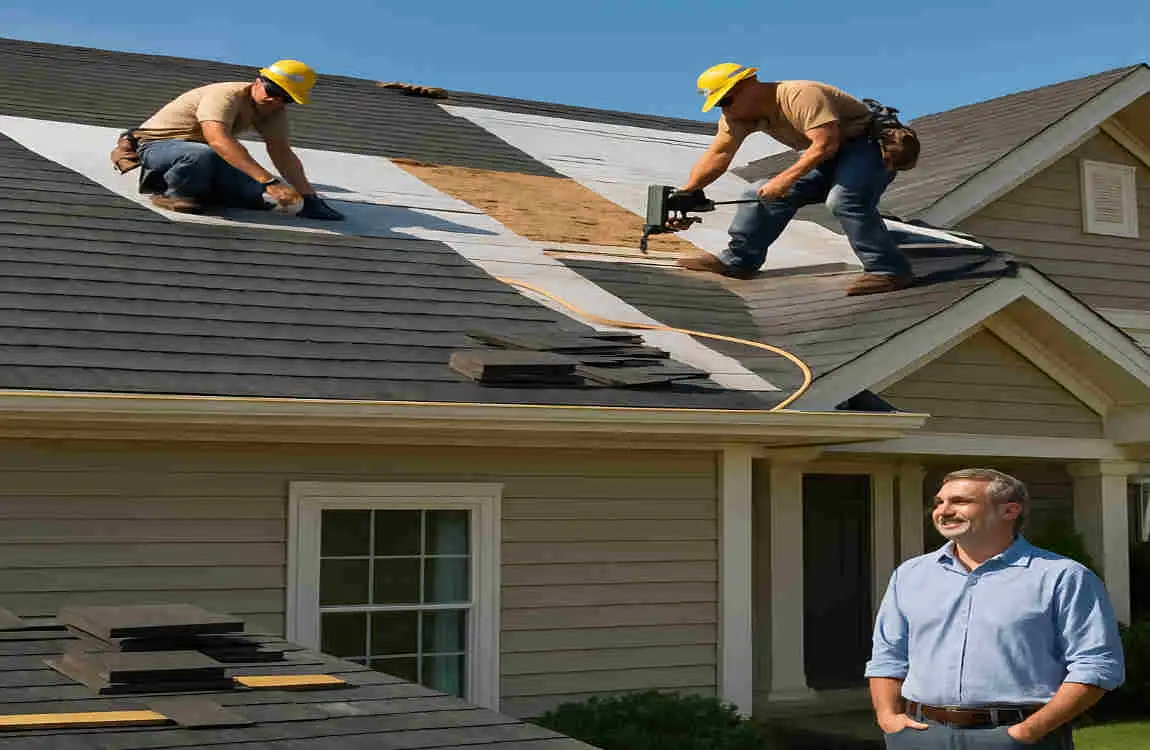
Choosing Quality Materials and Reliable Contractors
To maximize the value of your new roof, it’s crucial to choose high-quality materials and work with a reliable, experienced contractor. Research different roofing materials and their benefits, and read reviews to find a reputable roofing company in your area. By investing in quality, you’ll ensure that your new roof adds the most value to your home.
Maintaining Consistent Aesthetics
When installing a new roof, it’s essential to maintain consistent aesthetics with your home’s architectural style. Choose a roofing material and color that complements your home’s exterior and enhances its overall appearance. By maintaining a cohesive look, you’ll maximize the curb appeal and value of your new roof.
Proper Permits and Inspections
To assure potential buyers of the safety and legality of your new roof, it’s crucial to obtain the necessary permits and inspections. Work with your roofing contractor to ensure that all local building codes and regulations are followed. By having proper documentation, you’ll give buyers peace of mind and boost your home’s value.
Enhancing Roof-Related Home Features
In addition to the roof itself, consider enhancing other roof-related home features to maximize its value. This can include upgrading your gutters, improving ventilation, and adding insulation. By making these improvements, you’ll not only add value to your home but also make it more attractive to potential buyers.
Signs You Need a New Roof Before Selling Your Home
Common Signs of Roof Damage or Aging
Before listing your home for sale, it’s essential to assess the condition of your roof. Look for common signs of damage or aging, such as:
- Missing, cracked, or curling shingles
- Granule loss or bald spots on shingles
- Sagging or uneven roofline
- Water stains or leaks in the attic or ceiling
- Visible mold or mildew growth
If you notice any of these signs, consider a new roof before selling your home.
Roof Inspection Tips Before Listing
To ensure that your roof is in good condition before listing your home, consider hiring a professional roof inspector. They can assess the overall health of your roof, identify any potential issues, and provide recommendations for repairs or replacement. Through a thorough inspection, you can identify and address any problems, ultimately maximizing the value of your home.
The Negative Impact of Delaying Replacement
Delaying a necessary roof replacement can have a significant negative impact on your home’s sale value. If potential buyers notice a damaged or aging roof, they may be deterred from making an offer or request a lower price to account for the needed repairs. By addressing the issue before listing your home, you’ll ensure that your roof doesn’t become a liability during the selling process.
Financing and Cost Considerations
Typical Cost Range for a New Roof
The cost of a new roof can vary depending on factors such as the size of your home, the type of roofing material used, and the complexity of the installation. On average, a new roof can cost anywhere from $5,000 to $20,000 or more. While this may seem like a significant investment, it’s essential to consider the potential value it adds to your home.
Available Financing Options and Incentives
If you’re concerned about the upfront cost of a new roof, several financing options and incentives are available to help offset the expense. Many roofing companies offer financing plans, allowing you to spread out the cost over time. Additionally, some states and local governments provide tax credits or rebates for energy-efficient roofing materials. Be sure to research your options and take advantage of any available incentives to make your new roof more affordable.
ROI Considerations for Homeowners
When considering a new roof, it’s essential to think about the return on investment (ROI). While the exact ROI can vary depending on your location and the specifics of your home, a new roof can generally add significant value to your property. In many cases, the value added can exceed the cost of the roof itself, making it a worthwhile investment for homeowners planning to sell soon.
Real-Life Examples and Case Studies
Homeowners’ Experiences Selling After a Roof Replacement
To illustrate the impact of a new roof on a home’s value, let’s examine some real-life examples and case studies. In one instance, a homeowner in a suburban neighborhood replaced their aging asphalt shingle roof with a new, high-quality metal roof. As a result, they were able to sell their home for 5% more than the original asking price, recouping the cost of the new roof and then some.
In another case, a homeowner in a coastal area replaced their damaged tile roof with a new, hurricane-resistant metal roof. The new roof not only added value to their home but also made it more attractive to potential buyers concerned about storm damage. As a result, the home sold quickly and for a higher price than comparable properties in the area.
Local Market Differences and Outcomes
It’s essential to note that the impact of a new roof on a home’s value can vary depending on the local real estate market. In some areas, a new roof may be a significant selling point and can add substantial value to your home. In other markets, the impact may be less pronounced. To get a better understanding of how a new roof can affect your home’s value, it’s essential to consult with local real estate professionals and research comparable sales in your area.
Expert Opinions from Real Estate Agents and Appraisers
Real estate agents and appraisers can offer valuable insights into the impact of a new roof on a home’s value. According to many experts, a new roof is one of the most important factors that buyers consider when evaluating a property. A well-maintained, high-quality roof can instill confidence in buyers and justify a higher asking price. Additionally, appraisers often consider the condition of the roof when determining a home’s value, making a new roof a wise investment for homeowners seeking to maximize their property’s worth.

